Editorial
Bloody Saturday: Shiite-Military Showdown
Published
8 years agoon
By
Olu Emmanuel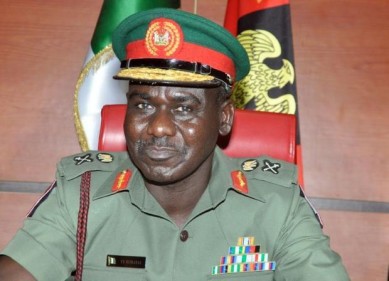
ALTHOUGH the ember of the deadly exchange of fire between the Nigerian military and the Shiite sect, the Islamic Movement of Nigeria (IMN) may have died down, accusations and counter accusations are still flying about to determine who really was the aggressor and the victim. The pedestrian rhetoric is laden with emotion, first for the arbitrary military killing of Shiite members, then anger against the sheer arrogance of the IMN that has constituted itself into an illegal entity challenging the Nigerian State. What we have witnessed in the last few days is the ventilation by the IMN of its schizophrenic extremism, lawlessness and terrorism-inspired tactics against the Nigerian nation.
The incident would have been written off as another tragic ranting of disgruntled and jobless Northern youths, but to think so would have been fatal especially when the name of Sheikh El-Ibrahim Zakzaky, the tempestuous leader of the Islamic Movement of Nigeria is linked with the tragic face-off. There is dark and doleful fear that the Zaria military/Shiite confrontation, may, if care is not taken, morph into a full-blown terrorist organisation like Boko Haram in Borno, North East of Northern Nigeria.
The narrative of the incident from both sides of the divide seems persuasive of its adherents. Both the Shiites and military sympathisers are feeling so assured of their own rigid positions so much that the altars of truth are being defiled in this unfortunate religious- military tragedy. We were reliably informed that the unfortunate incident started from Friday and went through Saturday. The Chief of Army Staff, from what we heard, was going for an official assignment of graduating recruits at the Nigerian Army Depot, from where he will meet with His Highness (the Emir of Zazzau).
It was said that the Chief of Army Staff (COAS) was then prevented from driving through a blocked highway manned by members of the Shiite sect. In a humiliating climb down, it then transpired that the COAS had to come down to introduce himself and pleaded with the leaders of the Shiite movement. It was reported that only when the Shiites leaders resisted his peaceful plea that the incident turned bloody. It was argued that the palpable urgency of the moment, especially when the life of COAS and his entourage were under threat, that the Army had to undertake a pre-emptive rescue manoeuvre that led to tragic loss of innocent lives.
Here, there is a case for soul searching and questions to be answered. First, is the Shiite-led Islamic Movement of Nigeria above the law of the land by holding a procession without permit and blocking the highway, thus denying access to innocent citizens? Why would they resist the pleas of the head of the Nigerian Army? What are their religious and political motives? Why would any group in Nigeria hide under the banner of religion to confront and humiliate the Nigerian Army or anybody at all?
Why is the leader of the Islamic Movement of Nigeria, Sheikh El Ibrahim Zakzaky nursing the noxious ambition of creating an Islamic republic in the North West? Is Northern Nigeria becoming a fertile recruiting ground for Islamic extremism to the shameful extent that other faiths have no right to practice their own religion in an atmosphere of peace and harmony? By reinforcing a dangerous religious demarcation, this paper condemns in very strong terms the act of religious rebelliousness in which the Islamic Movement of Nigeria has consistently terrorized Zaria and its environs.
Equally condemnable is the link of the organisation with Iran, a country that may want to export its authoritarian, theocratic mode of governance into our domestic affairs. We call on the Federal Government to sanction the Islamic Republic of Iran and warn it from dabbling in the internal affairs of a sovereign Nigeria in the guise of Islam.
But is the Nigerian Army right in deploying disproportionate force against the sect members? Has it taken leave of the existing frames of engagement when confronted by unarmed civilians? The Army may want to argue that we are in a world of radical insecurity and perpetual religious conflicts but would that reason alone justify this murderous killing, allegedly put at about 300 civilians, a killing that smacks of a gross violation of the victims’ fundamental human rights?
We sympathise with President Muhammadu Buhari, the commander-in-chief of the Armed Forces, as he faces a clash of convictions: would it have been proper and fit to condemn the Nigerian Military who took action against a sect that may one day clone the manual of Boko Haram and create another theatre of Islamic warfare in the North West, or reprimand the Shiite for contumaciously installing road blocks on the highway?
At a time when this nation is fighting a dangerous, asymmetrical and murderous Boko Haram insurgency, it is a height of insensitivity for the Shiite-led Islamic Movement of Nigeria to foment, even remotely, any kind of public disturbance. We think, therefore, that a judicial commission of inquiry presided over by a retired Supreme Court justice, should be urgently constituted to look into the matter to forestall any relapse into the North West version of Boko Haram.
You may like


Can Pantami be prosecuted for acts of terrorism?
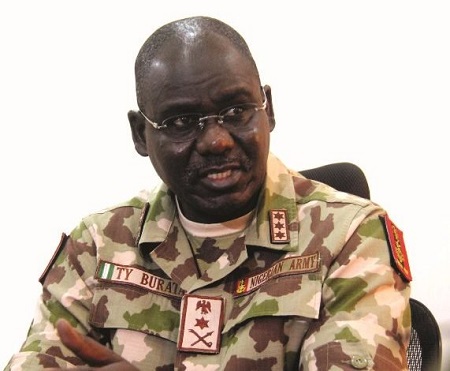

Fresh trouble for Chief of Army Staff, Buratai, as Boko Haram invade, kill 69 in Gubio Community in Borno
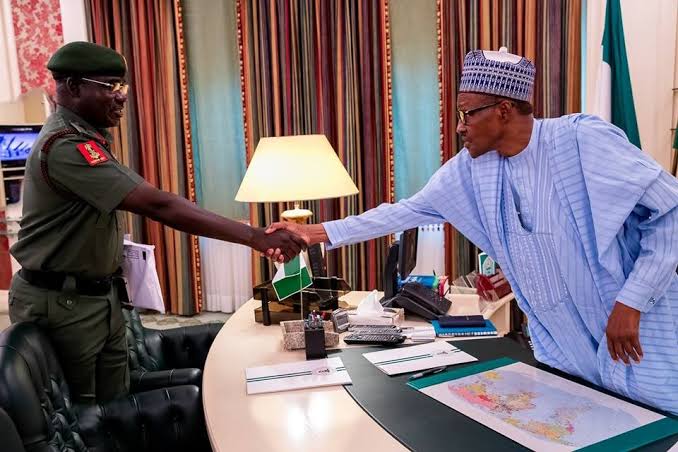

Buratai tells Buhari Army killed over 1400 Boko Haram terrorists in Northeast
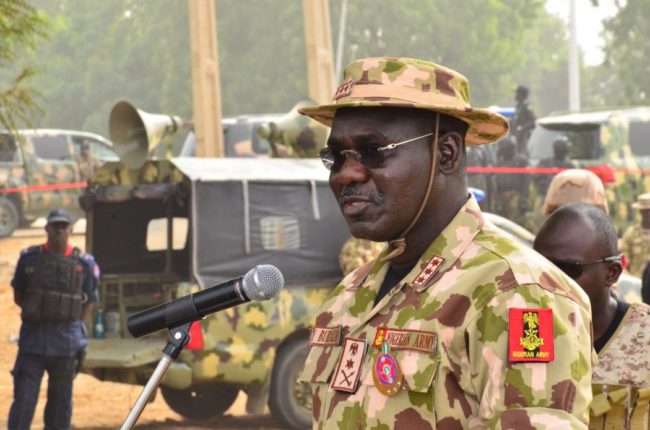

Shake up! Chief of Army Staff, Buratai, absent at service chiefs meeting with Buhari


Buratai surrenders to Boko Haram super power, resorts to spiritual warfare
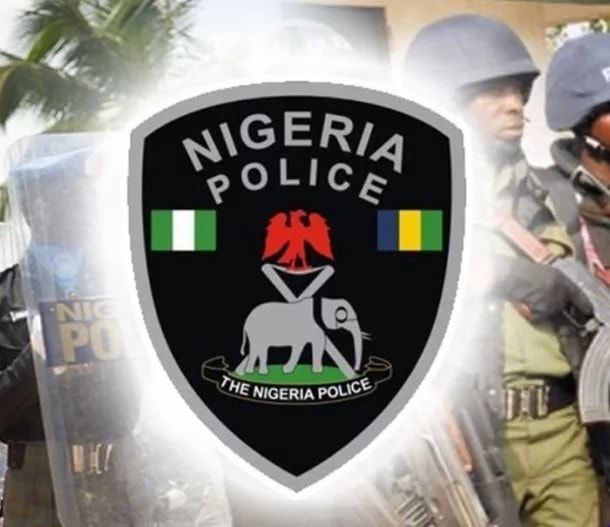

Police clarifies, ban on procession only applicable to IMN members
Trending

 Business6 days ago
Business6 days agoDollar crashes further against Naira at parallel market

 Business6 days ago
Business6 days agoRecapitalisation: Zenith Bank to raise funds in international capital market

 Education6 days ago
Education6 days agoArmy reveals date for COAS 2024 first quarter conference

 Crime6 days ago
Crime6 days agoFleeing driver injures two on Lagos-Badagry expressway

 Covid-196 days ago
Covid-196 days agoBritish legislator demands Bill Gates, other ‘COVID Cabal’ faces death penalty

 Business6 days ago
Business6 days agoZenith Bank surpasses N2trn earnings milestone

 Latest4 days ago
Latest4 days agoIsrael pounds Hezbollah with airstrikes after Iran attack
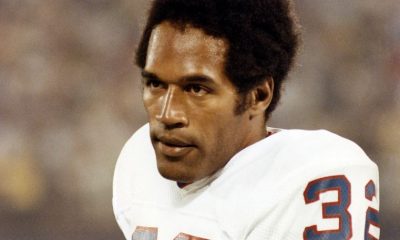
 Featured7 days ago
Featured7 days agoAmerican football icon OJ Simpson goes home

